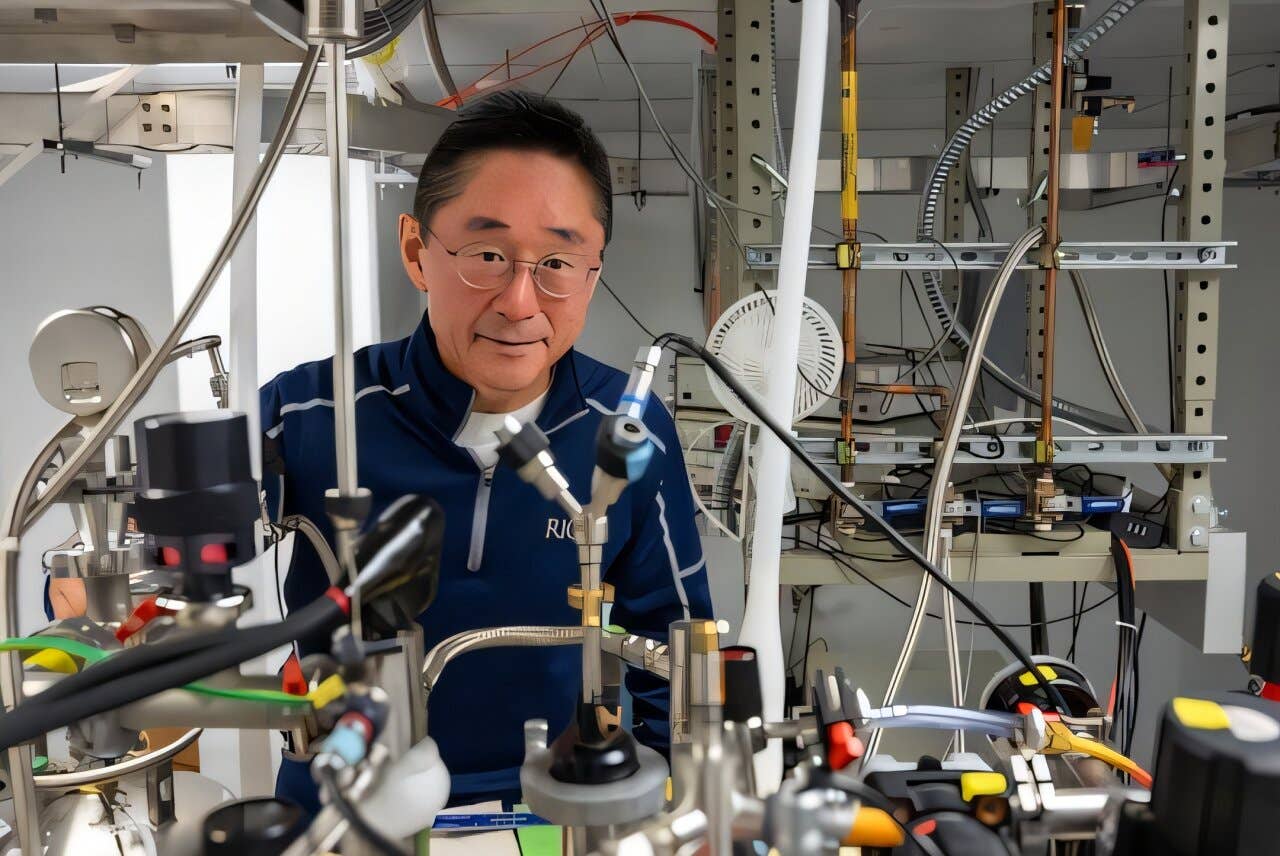The real effect of drugs and alcohol on creativity: Surprising research findings
Scientific research has shown that the relationship between drugs/alcohol and creativity is not as straightforward as previously believed.

[Mar. 26, 2023: JJ Shavit, The Brighter Side of News]
Scientific research has shown that the relationship between drugs/alcohol and creativity is not as straightforward as previously believed.(CREDIT: Creative Commons)
The link between creativity and drug use has been a topic of interest for decades. Many famous artists, writers, and musicians have been known to use drugs and alcohol to enhance their creativity. However, recent scientific research has shown that the relationship between drugs/alcohol and creativity is not as straightforward as previously believed.
The History of Drugs and Creativity
The idea that drugs and alcohol can enhance creativity is not a new one. In fact, many famous artists and writers throughout history have been known to use drugs and alcohol to enhance their creative output. For example, the famous writer Ernest Hemingway was known to drink heavily while writing, and the poet Samuel Taylor Coleridge wrote his famous poem "Kubla Khan" while under the influence of opium.
This connection between drugs and creativity became even more prevalent during the 1960s counterculture movement. Many artists and musicians of the time used drugs such as marijuana and LSD to enhance their creative output. This led to the popular belief that drugs and alcohol were essential for creative expression.
However, despite this popular belief, there has been little scientific research on the topic until recently.
Related Stories:
The Science Behind Creativity
Before we dive into the research on drugs and creativity, it's important to understand what creativity is and how it works in the brain. Creativity is a complex process that involves several different brain regions and cognitive processes. These include:
Divergent thinking: This is the ability to generate a wide range of ideas or solutions to a problem.
Convergent thinking: This is the ability to identify the best solution to a problem.
Working memory: This is the ability to hold information in your mind while performing mental tasks.
Attention: This is the ability to focus on a task and ignore distractions.
Executive function: This is the ability to plan, organize, and execute tasks.
All of these cognitive processes work together to create the creative output we see in art, writing, music, and other forms of expression. However, the specific brain regions involved in creativity are still not fully understood.
Research on Drugs and Creativity
Despite the popular belief that drugs and alcohol can enhance creativity, recent scientific research has shown that this is not the case. In fact, many drugs and alcohol can actually impair cognitive function and decrease creativity.
Marijuana
Marijuana is one of the most commonly used drugs for enhancing creativity. However, recent research has shown that the relationship between marijuana and creativity is not as straightforward as previously believed.
A study published in the journal Consciousness and Cognition found that low doses of THC (the active ingredient in marijuana) can enhance divergent thinking, but only to a certain extent. Higher doses of THC actually impaired divergent thinking and decreased creativity.
Another study published in the journal Psychopharmacology found that marijuana use actually impaired convergent thinking (the ability to identify the best solution to a problem) and working memory. This means that marijuana use can actually decrease overall cognitive function and creativity.
Another study was conducted by the University of London and published in the journal Psychopharmacology in 2016.
The study involved 24 participants who were regular marijuana users and 24 participants who did not use marijuana. The participants were asked to complete a series of creative thinking tasks while under the influence of marijuana or a placebo.
The results of the study showed that marijuana use did not enhance creativity. In fact, the participants who used marijuana performed worse on the creative thinking tasks than the participants who did not use marijuana.
The researchers concluded that while marijuana use may be associated with certain cognitive changes, it does not enhance creativity. This is consistent with other studies that have found no significant link between marijuana use and creativity.
Alcohol
There have been a number of studies conducted on the relationship between alcohol use and creativity. While some studies have suggested that alcohol use can enhance creativity, others have found no support for this idea.
One study conducted by Crebolder and van Noorden (2019) aimed to investigate the effects of alcohol consumption on creativity. The study involved 78 participants who were randomly assigned to one of three groups: a placebo group, a low-dose alcohol group, and a high-dose alcohol group. Participants in the alcohol groups were given either a low or high dose of alcohol based on their body weight, while the placebo group received a non-alcoholic beverage.
After consuming their assigned beverage, participants were asked to complete a series of creativity tasks, including the Alternative Uses Test and the Remote Associates Test. The results showed that there were no significant differences in creativity between the three groups. In fact, the low-dose alcohol group actually performed slightly worse on the Remote Associates Test compared to the placebo group.
Another study conducted by Martin et al. (2013) aimed to investigate the effects of alcohol consumption on creative problem-solving. The study involved 88 participants who were randomly assigned to one of three groups: a sober group, a low-dose alcohol group, and a high-dose alcohol group. Participants in the alcohol groups were given either a low or high dose of alcohol based on their body weight, while the sober group received a non-alcoholic beverage.
After consuming their assigned beverage, participants were asked to complete a series of creative problem-solving tasks, including the Compound Remote Associates Test and the Remote Associates Test. The results showed that there were no significant differences in creative problem-solving between the three groups.
While some studies have suggested that alcohol use can enhance creativity, these findings suggest that alcohol consumption may not have a significant effect on creative thinking. It is possible that the popular notion that alcohol enhances creativity may be due to a placebo effect or cultural myths, rather than actual scientific evidence.
LSD
While some studies suggest that LSD use can enhance creativity, not all research supports this idea. One study published in the Journal of Psychopharmacology in 2016 found that while LSD did increase subjective reports of creativity, it did not actually improve performance on creative tasks.
The study involved 48 participants who were randomly assigned to receive either LSD (100 micrograms) or a placebo. The participants then completed a battery of creative tasks, including the Alternative Uses Task (which measures divergent thinking), the Torrance Test of Creative Thinking (which measures fluency, flexibility, originality, and elaboration), and a self-reported creativity scale.
The results showed that while the LSD group reported higher levels of creativity than the placebo group, they did not actually perform better on the creative tasks. In fact, the LSD group performed worse than the placebo group on some measures, including the Originality subscale of the Torrance Test.
The authors of the study concluded that while LSD may enhance subjective reports of creativity, it does not actually improve performance on creative tasks. This suggests that the idea that LSD use can enhance creativity may be more of a myth than a reality.
Overall, the research on drugs and creativity suggests that while some drugs may enhance certain aspects of creative thinking, they also impair other important cognitive processes. This means that the overall effect on creativity is often negative.
The Risks of Drug and Alcohol Use
Aside from the negative effects on creativity, drugs and alcohol also pose a number of health risks. These include:
Addiction: Drugs and alcohol are highly addictive and can lead to dependence.
Physical health problems: Long-term drug and alcohol use can lead to a range of physical health problems, including liver disease, heart disease, and lung disease.
Mental health problems: Drugs and alcohol can also increase the risk of mental health problems, including depression and anxiety.
Legal problems: Drug and alcohol use can lead to legal problems, including arrest and incarceration.
Given these risks, it's clear that drugs and alcohol are not a viable option for enhancing creativity.
Alternative Ways to Enhance Creativity
While drugs and alcohol are not a viable option for enhancing creativity, there are other ways to boost creative output. Some of these include:
Mindfulness meditation: Mindfulness meditation has been shown to increase creative output by enhancing attention and reducing distraction.
Exercise: Regular exercise has been shown to enhance cognitive function and boost creativity.
Sleep: Getting enough sleep is essential for cognitive function and creativity.
Collaboration: Collaborating with other creative individuals can lead to new ideas and insights.
Taking breaks: Taking regular breaks from work or creative projects can help prevent burnout and enhance creative output.
The idea that drugs and alcohol can enhance creativity is a myth. While some drugs may enhance certain aspects of creative thinking, they also impair other important cognitive processes, leading to an overall negative effect on creativity.
Note: Materials provided above by The Brighter Side of News. Content may be edited for style and length.
Like these kind of feel good stories? Get the Brighter Side of News' newsletter.
Joseph Shavit
Head Science News Writer | Communicating Innovation & Discovery
Based in Los Angeles, Joseph Shavit is an accomplished science journalist, head science news writer and co-founder at The Brighter Side of News, where he translates cutting-edge discoveries into compelling stories for a broad audience. With a strong background spanning science, business, product management, media leadership, and entrepreneurship, Joseph brings a unique perspective to science communication. His expertise allows him to uncover the intersection of technological advancements and market potential, shedding light on how groundbreaking research evolves into transformative products and industries.



